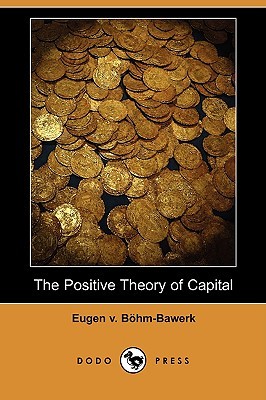
- We will send in 10–14 business days.
- Author: Eugen V Bohm-Bawerk
- Publisher: Dodo Press
- ISBN-10: 1409952045
- ISBN-13: 9781409952046
- Format: 15.2 x 22.9 x 2.7 cm, softcover
- Language: English
- SAVE -10% with code: EXTRA
Reviews
Description
Eugen Ritter von Böhm-Bawerk (1851-1914) was an Austrian economist who made important contributions to the development of Austrian economics. In 1889, he was called to Vienna by the finance ministry to draft a proposal for directtax reform. His proposal called for a modern income tax, which was soon approved and met with a great deal of success in the next few years. He then became Austrian Minister of Finance in 1895. As Finance Minister he fought continuously for strict maintenance of the legally fixed gold standard and a balanced budget. His works include Capital and Interest: A Critical History of Economic Theory (1884) and The Positive Theory of Capital (1884).
EXTRA 10 % discount with code: EXTRA
The promotion ends in 15d.05:19:49
The discount code is valid when purchasing from 10 €. Discounts do not stack.
- Author: Eugen V Bohm-Bawerk
- Publisher: Dodo Press
- ISBN-10: 1409952045
- ISBN-13: 9781409952046
- Format: 15.2 x 22.9 x 2.7 cm, softcover
- Language: English English
Eugen Ritter von Böhm-Bawerk (1851-1914) was an Austrian economist who made important contributions to the development of Austrian economics. In 1889, he was called to Vienna by the finance ministry to draft a proposal for directtax reform. His proposal called for a modern income tax, which was soon approved and met with a great deal of success in the next few years. He then became Austrian Minister of Finance in 1895. As Finance Minister he fought continuously for strict maintenance of the legally fixed gold standard and a balanced budget. His works include Capital and Interest: A Critical History of Economic Theory (1884) and The Positive Theory of Capital (1884).


Reviews